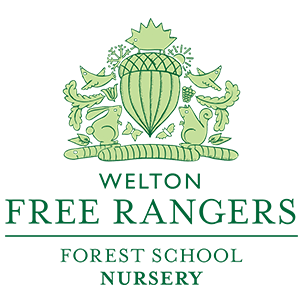" The winner of the puddle splash competition is......"
Last week all the practitioners had a whale of a time (see the Warren's photo) submitting their puddle jumping photos.
There was no prize for the winners and the rooms didn't have to partake, there was actually no reason to do it, and like all play; the process of partaking was more important than the actual outcome.
At Free Rangers we focus on learning through play, so we thought it might be helpful to explain a little of the theory behind it.
Why play is important, taken from:
http://pro.psychcentral.com/child-therapist/2014/08/why-kids-need-to-play/#
1. "Play is essential to development because it contributes to the cognitive, physical, social, and emotional well-being of children.” Play is necessary in order to help children develop social skills.
2. Play is important to a child’s neurological development. By playing, children are promoting healthy brain development because they are strengthening many neuronal connections that would otherwise disappear or weaken if not used.
3. United Nations High Commission for Human Rights recognized play as a right of every child because of its importance to optimal child development.
4. Play helps children adjust to school and improves their readiness to learn. When children are allowed to play without being told what they specifically have to do, they become more focused, have greater attention spans, and improve their academic skills.
5. Overscheduled family lifestyles often lead to less time for quality parent-child interaction and child-driven play.
6. Children learn how to share, resolve conflicts, make decisions, be assertive, and work in groups through unstructured play. Although some children are more apt to have these skills than others, most children are able to develop these great social skills through playing with other children. Even playing alone can help a child gain self-confidence, assertiveness, decision-making skills, and much more.
7. Play allows children to identify, express, and learn about feelings. Children often use pretend play to act out things they see in their lives, such as what their mom and dad are like, experiences that occur at school, or what friendships are like. Amidst these everyday life experiences, children of course have feelings about the events. Children become more aware of their own and others’ feelings and how to manage feelings by expressing them and working through emotions in play.
8. Children can make sense of their life experiences through unstructured play. Children don’t see things the same way as adults do, so they can use play to have a better understanding of certain life experiences.
9. Parents can help children who are experiencing a wide range of difficulties by learning how to play with them in a specific way using selected toys. There are also therapeutic interventions that a therapist or play therapist can teach a parent to best suit the child’s situation.
10. Parents can significantly improve their relationships with their children by learning how to play with them in a specific way using selected toys. When parents simply be with their child and truly focus on their child (without being in a hurry or trying to over-manage the play), their relationship with their child can greatly improve. Play time doesn’t have to occur for hours a day. It can be as little as a few minutes here and there but doing this type of play on a daily or at least almost daily basis is very helpful to a parent-child relationship.
Here are some types of play to look out for. coined by the brilliant Bob Hughes http://rphughes44.blogspot.co.uk/p/publications.html
Symbolic Play – play which allows control, gradual exploration and increased understanding without the risk of being out of one’s depth.
Rough and Tumble Play – close encounter play which is less to do with fighting and more to do with touching, tickling, gauging relative strength. Discovering physical flexibility and the exhilaration of display.
Socio-dramatic Play – the enactment of real and potential experiences of an intense personal, social, domestic or interpersonal nature.
Social Play – play during which the rules and criteria for social engagement and interaction can be revealed, explored and amended.
Creative Play – play which allows a new response, the transformation of information, awareness of new connections, with an element of surprise.
Communication Play – play using words, nuances or gestures for example, mime, jokes, play acting, mickey taking, singing, debate, poetry.
Dramatic Play – play which dramatizes events in which the child is not a direct participator.
Deep Play – play which allows the child to encounter risky or even potentially life threatening experiences, to develop survival skills and conquer fear.
Exploratory Play – play to access factual information consisting of manipulative behaviours such as handling, throwing, banging or mouthing objects.
Fantasy Play – play which rearranges the world in the child’s way, a way which is unlikely to occur.
Imaginative Play – play where the conventional rules, which govern the physical world, do not apply.
Locomotor Play – movement in any or every direction for its own sake.
Mastery Play – control of the physical and affective ingredients of the environments.
Object Play – play which uses infinite and interesting sequences of hand-eye manipulations and movements.
Role Play – play exploring ways of being, although not normally of an intense personal, social, domestic or interpersonal nature.
Recapitulative Play – play that allows the child to explore ancestry, history, rituals, stories, rhymes, fire and darkness. Enables children to access play of earlier human evolutionary stages.
So what have you all been up to this weekend? If you have any brilliant play photos, please do post them on our Facebook page.
Oh, the winner is....The Burrow!
